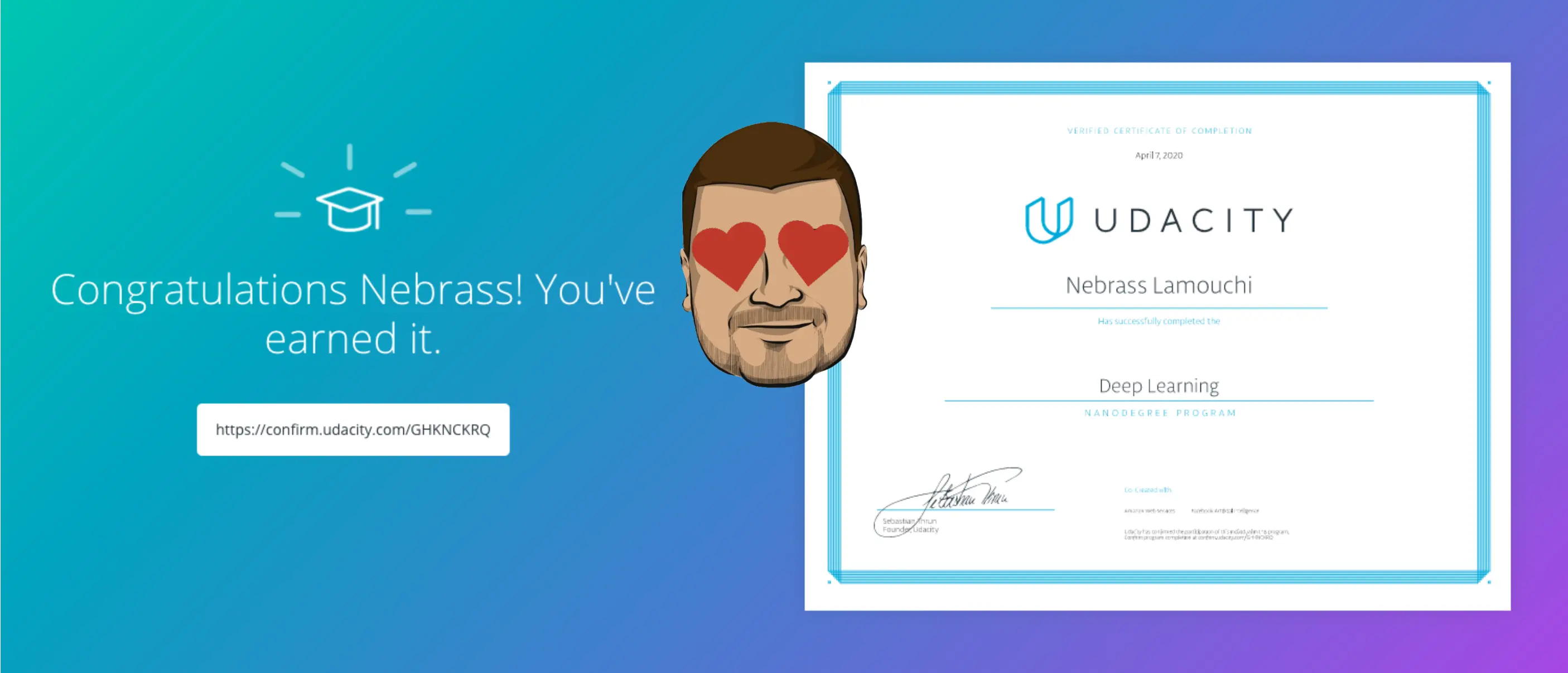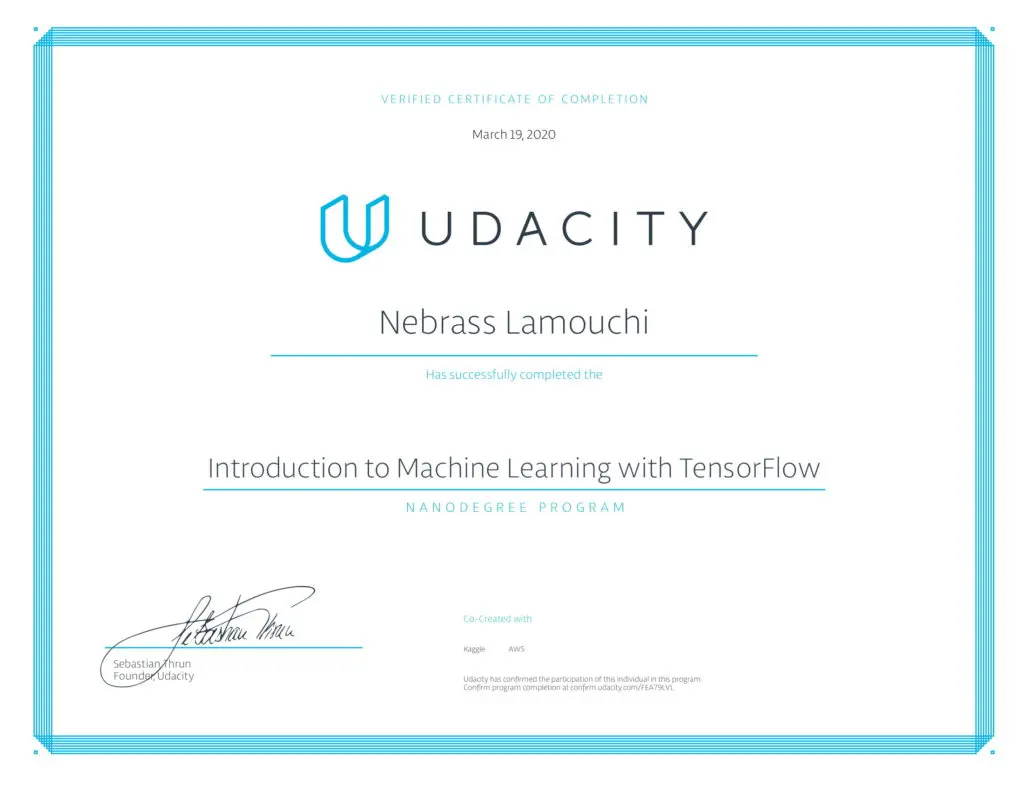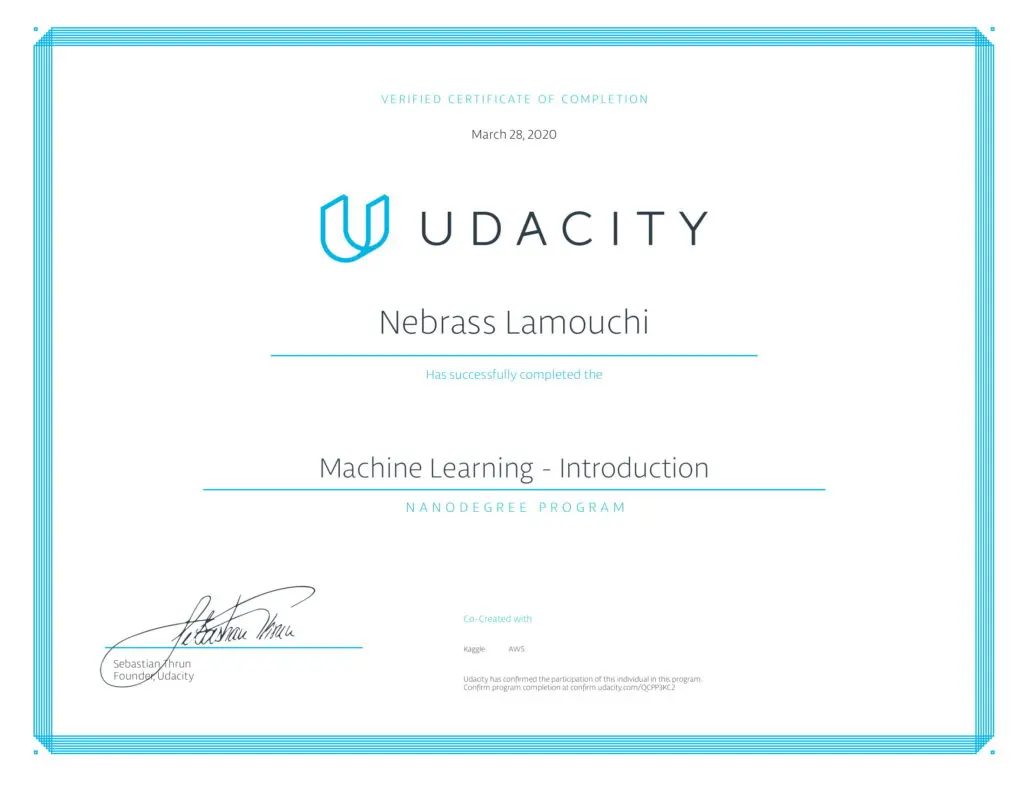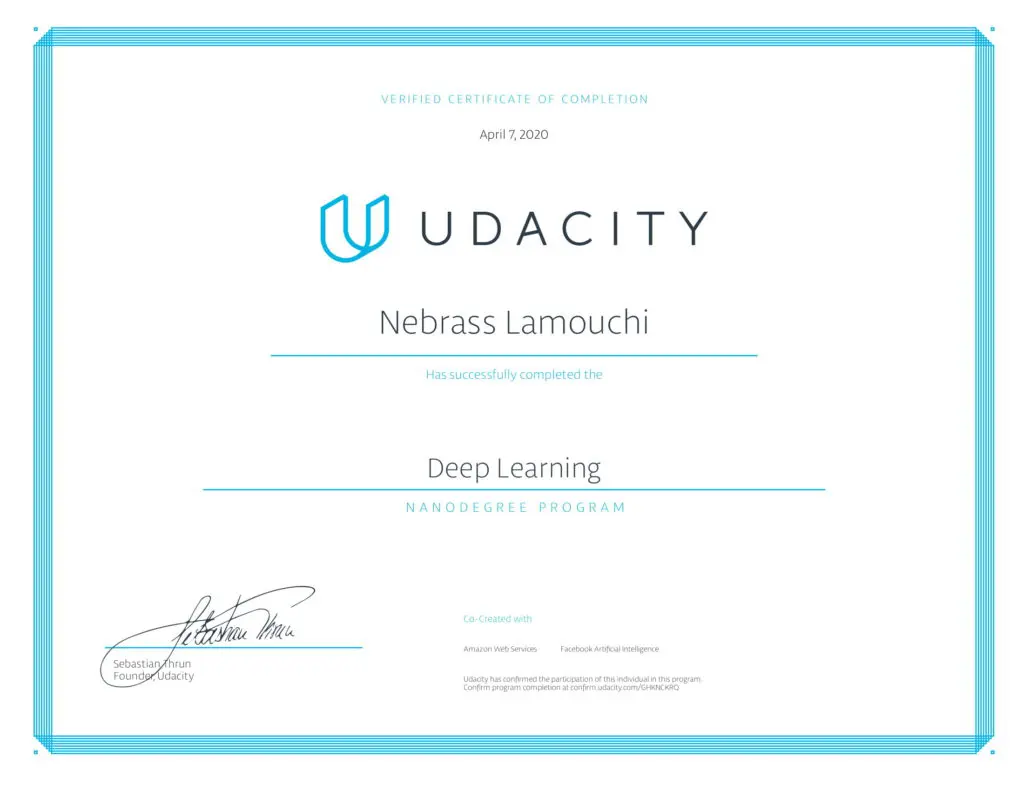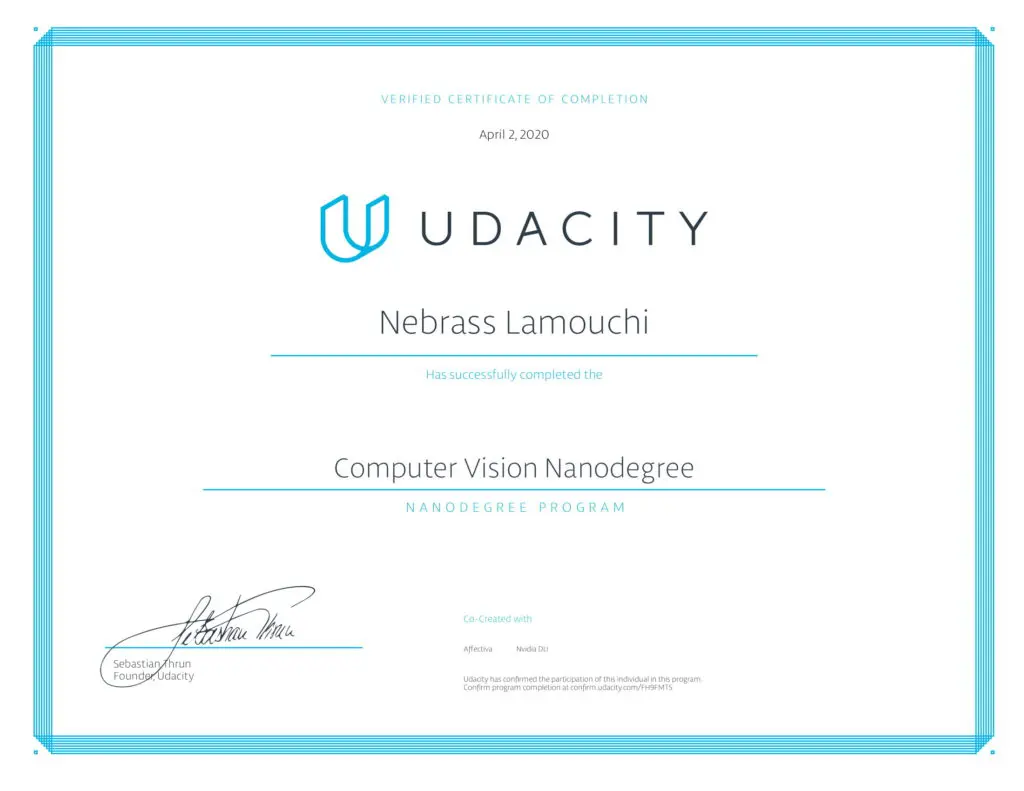Good ! This post has a conclusion into its title ! Udacity was the biggest discovery I’ve made during the COVID-19 lockdown 🤩 I was seeking for an interactive learning platform like DataCamp, where I finished all the trainings that I’m interested on. By the end of the February, I found Udacity while I was searching for some AI/ML intensive course.
 Udacity Logo
Udacity Logo
⚠️ Disclaimer: This is not a marketing/referral post. This is a review for an e-learning website for my readers. I wish always to share the best learning materials/sources 😇 feel free to click on any link 😂
For sure, you are asking yourself, why you just didn’t take some course in Edx or Coursera ? Good, many of my friends asked me that question. I have been learning IT since my age of 15yo. So I have experienced many learning materials and I know that one of my weaknesses in my learning process: if the learning experience is no AMAZING, I will not enjoy the trip, and maybe I will not be able to get the knowledge that I’m seeking. This point is well known by teachers and trainers, to be sure that the students get the most of the courses, they need to be pleased while learning. Which is not the case for Edx & Coursera. The UX is not so good. There is the gray old template that keeps appear for each course, problem in the responsive design, and very cold process. Nothing interactive, just some QUIZs if we want to call that interactive. I took many courses with Edx & Coursera, the content was extremely nice, no doubt, but the learning experience is something that I’m always seeking.
Udacity has a wonderful UI & UX.. very relaxing color (many blue degrees 😍 my favourite):
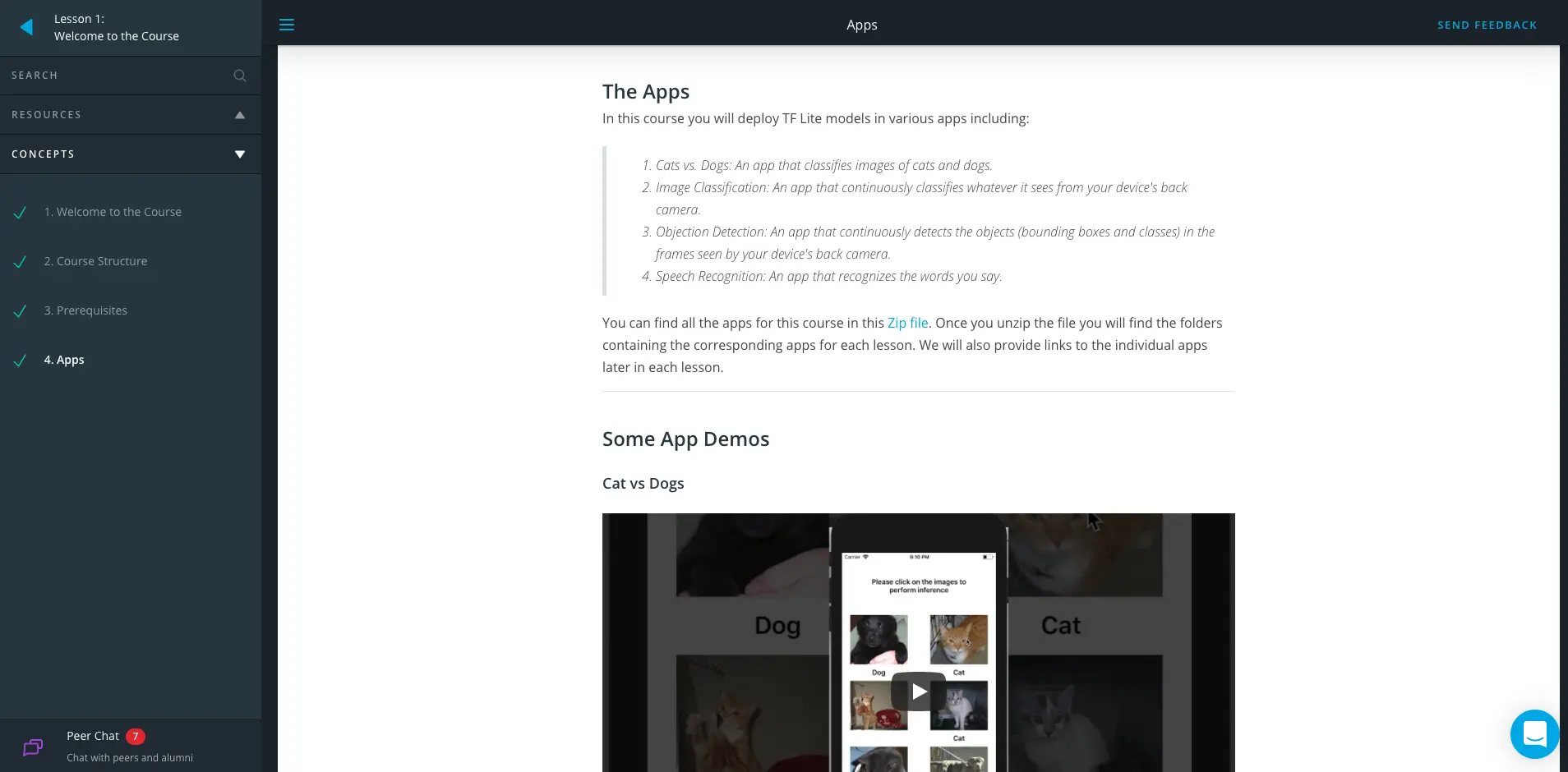 Udacity UI
Udacity UI
diversified learning materials in the same chapter : shorts videos (to guarantee that you will not fall asleep while watching 😂), text content, quizzes and exercices, but the biggest UP is the PROJECTS 🤩 yes ! Udacity validates the courses parts only in practical complex projects that you have to do by yourself. Guess what, there are professionals that will do the code reviews and they will reject your work if it’s not compliant with the coding standards or the market standards 😁 take this example, I submitted a project with some bugs in the C++ Course and my reviewer refused my work 😅:
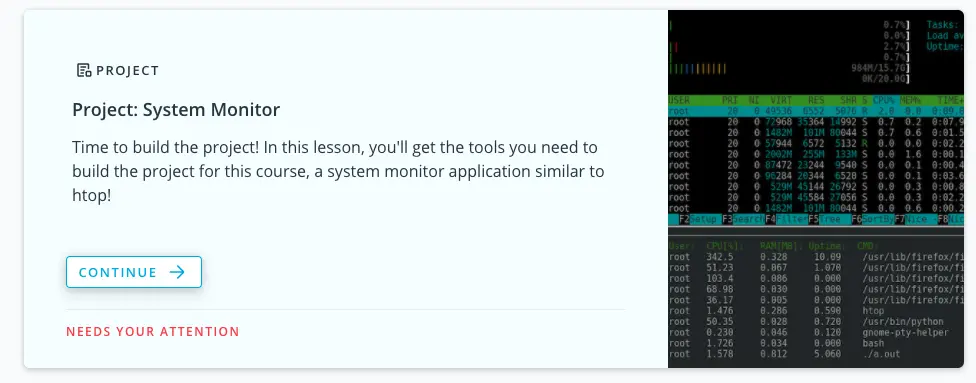 Project needs attention 😅
Project needs attention 😅
and you can get all the information that you need about the weaknesses in your code:
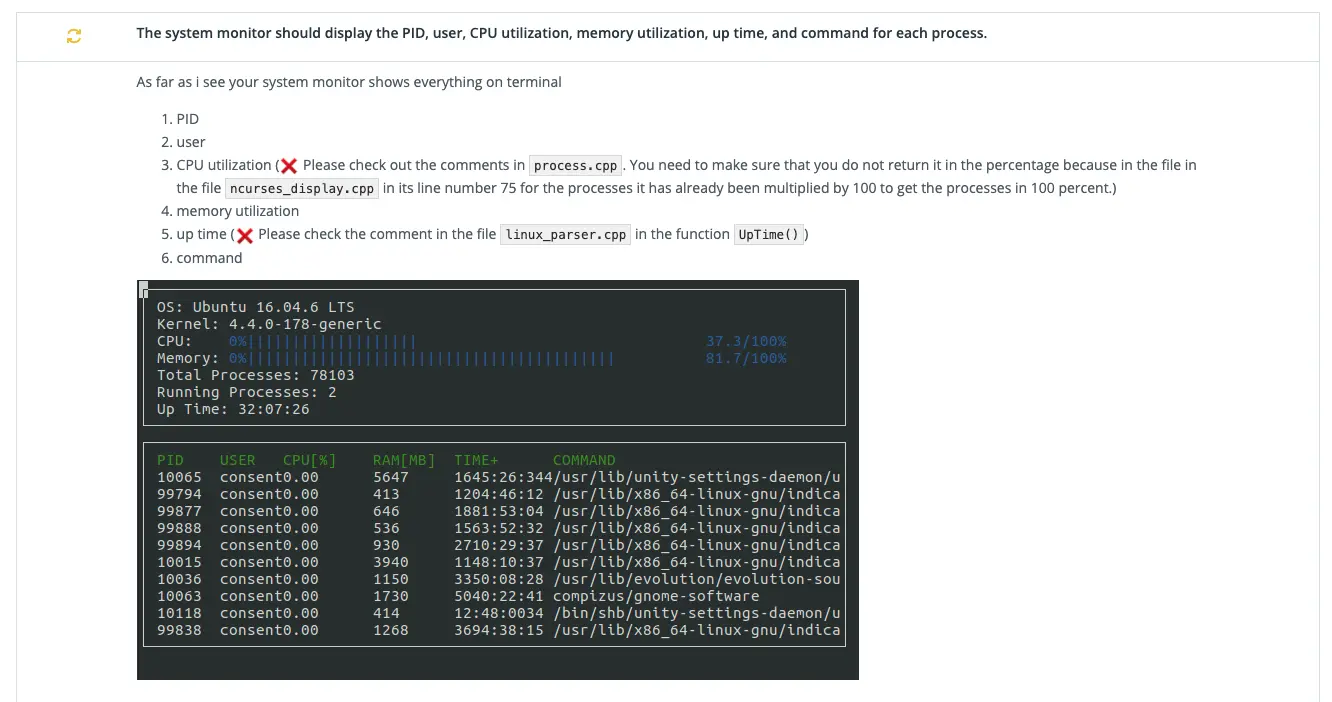 Code review - Explanation of the weaknesses
Code review - Explanation of the weaknesses
A very professional code review, with examples, screenshots and guideline to forward you in the correct path.
The content of the courses is really impressive. Very nice learning paths and topics are covered in a very coherent way, which helps a scared newbie to dig directly into the course and start gathering the needed knowledge. For example; I never did Deep Learning before, when I took the course, the content and the examples were very nice and I could get the knowledge I was seeking for. This is due to the skills of the trainers; many of them are Research Engineers working in Google, Apple, Amazon or Professors working in world-wide known universities (Standford, Toronto, etc..) .
Add to that, there are great forums and chat rooms for students, so you if you have some issue and you want help, you can get it from your mentor or also from your peers 😇
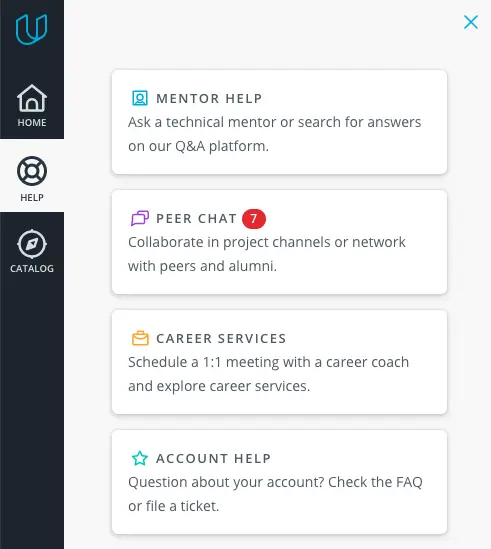 Udacity - Help Section
Udacity - Help Section
To optimize the journey, Udacity offers ready workspaces, for example for AI/ML/DL courses, you have free Jupyter Notebooks environment with GPU enabled to make the learning experience COMPLETE.
There is also a very handy service included in each course: the Career Service 🏆 We know all that there is no good professional without soft skills, and we also know that unfortunately IT students & professionals are one of the most missing these skills.
Maybe because of the long hours spent alone 😂 This service comes out to help you :
- Improve your Linkedin profile and your Github account 🤩
- Research Your Career Options: It is critical you research your field to discover what skills are in-demand, and what’s expected of job candidates. You need to explore open roles, determine which align with your career goals, and identify the jobs you’re qualified for.
- Network: You never know where your next opportunity will come from, so don’t miss any chance to make genuine connections with those in your desired field. Don’t be afraid to reach out, and remember, networking is a “professional” activity, even when it feels casual.
- Optimize Your Application Materials: Great resumes and cover letters don’t guarantee you get the job, but poor ones guarantee you don’t. Make sure to check every detail to ensure you’re telling the story you want to tell. At this stage of the hiring process, recruiters need to narrow the applicant pool. Don’t give them a reason to take you out of consideration.
- Apply To Jobs: The secret to increasing your odds of getting hired is applying to as many roles as possible, that you’re able to customize application materials for. Submitting 3 applications that are fully optimized, and tailored to specific roles, is better than submitting 200 generic applications.
- Rehearse For Your Interviews: Confidence is critical to succeeding in an interview, and the more you practice, the more confidence you’ll have. This applies to everything from coding challenges to questions about culture fit. The ability to clearly and confidently enunciate your value to a prospective employer can be the tipping point that ultimately gets you the job.
There is more 😆 you can have 1:1 coaching sessions with an experienced Career Coach.
 Udacity Career Portal
Udacity Career Portal
All of that is totally included in the price you pay for the Nanodegree. Yes ! we call the certificate of validation a Nanodegree. I personally consider it’s a real degree. You have an approved learning curriculum + exercices + end of module projects + mentors and reviewers + dedicated learning infrastructure + covering soft skills + full technical & academic support. There are all the requirements to be a standalone degree 😁 personally, I added the FOUR nanodegrees that I took in my CV as trainings, in the same section and importance as my Bachelor and my MSc.
Until now, I took 4 nanodegrees:
Intro to Machine Learning with TensorFlow covering TensorFlow, Deep Learning, scikit-learn, Supervised Learning, Unsupervised Learning
Intro to Machine Learning with PyTorch covering Introduction to Machine Learning, Supervised Learning, Deep Learning, Unsupervised Learning
Deep Learning covering Deep Learning, Neural Networks, Jupyter Notebooks, CNNs, GANs
Computer Vision covering Convolutional Neural Networks (CNN), Recurrent Neural Networks (RNN), Simultaneous Localization and Mapping (SLAM), Object Tracking, Image Classification, Deep Learning
Ladies and gentlemen, I am glad to present you my nanodegrees wall 😆 You can click on the picture to check the credential page 🤓
I highly recommend Udacity for all these reasons and more. There are always new topics covered and courses are regularly updated.. for example the Android Developer Nanodegree is today on its 10th version ! So you are sure that the content is always fresh 😁
The best for the end: Udacity is offering FREE ACCESS for one month ! 😁 Have fun !
